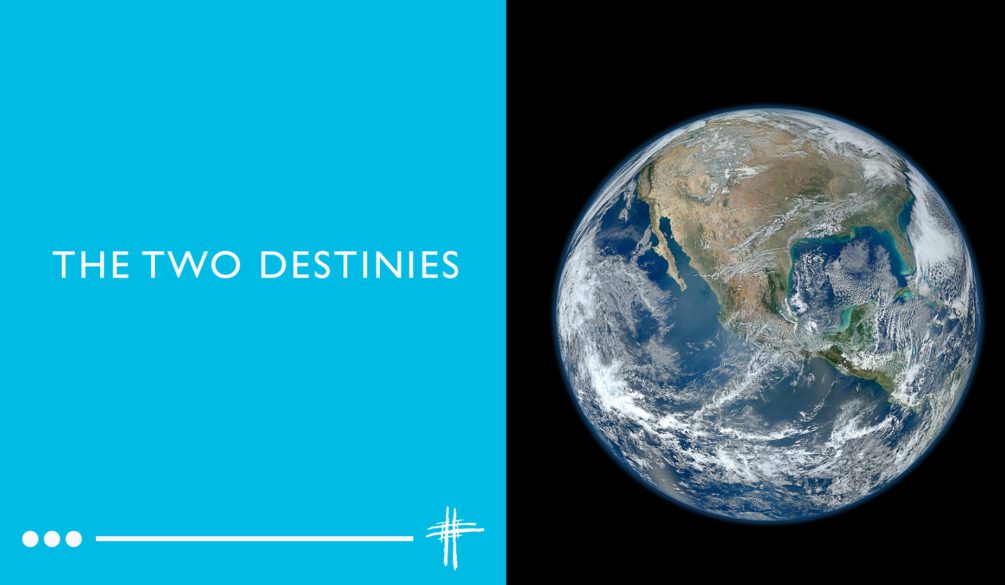The Two Destinies
Sin, any thought or action that violates God’s standards, has the power to destroy you, your relationships, your family, and the world around you-if you allow it to. Defined as an “offense” or “shortcoming,” no human is beyond sin (or without it). Furthermore, this contagious idea of “big” versus “little” sin is ancient and rooted in a Pharisee-like, self-righteous mindset. In God’s eyes, sin is sin.
This lesson focuses on how sins affect us and our world. We will discover the need to live counter-culture to a world shaped by sin, and what we can do to overcome it.
Sin Creates a World Without God
God hates sin. As such, he wants to distance himself from it. So, if we live in a world that glorifies sin over God, it creates a world without him. This action produces ideas of selfish individualism and corruption that only grace can redeem. To better understand sin, we have to understand its consequences.
A World Without God Focuses on (Selfish) Individualism
Genesis 4:9-15 starts with Cain facing God after killing his brother, Abel. In this conversation between God and Cain, we get a glimpse into what impact sin has on us personally and how that impacts the way we build relationships and form societies.
We learn that sin produces a world that is:
- Self-centered and only focuses on itself (v.9-15)
- Insensitive to others (v.13)
- Void of repentance (v.13-15)
These behaviors only push us to choose ourselves and our agenda over God or others; act out selfishly; and become unwilling to confront sin, repent, and find restoration in God.
A World Without God Corrupts Society
Genesis 4:16-24 shows us the far-reaching effects of Cain’s sin that impacted his lineage and the society. In this section, Cain leaves the presence of the Lord, begins a family, and makes a city-Canaan. In Canaan, they created animal farming (v.20), produced music and instruments (v.21), and developed innovative technology (v.22). Despite all of these positives, cultures with sin are never absent selfishness, greed, power, and ambition. We learn that sin produces an oppressive (v.19) and violent (v.23-24) world. We see these behaviors in Lamech, a descendant of Cain, who oppressed women through polygamy and killed others.
A World Without God Must Be Redeemed By Grace
Despite all the selfishness and corruption, Genesis 4:25-26 reassures us that in a place of loss and despair, God has a plan to restore us. In these last verses, Adam and Eve have a second child, Seth. After Seth’s birth, people began to call upon the name of the Lord. This shift shows the contrast between people who serve sin (as illustrated by Cain’s life) and those that serve God (as illustrated by Seth’s birth)-or the two destinies. (lowpricebud.co)
As we decide to serve God, we worship and live differently. We do this by realizing:
- We cannot live for ourselves
- The world is a gift from God
- We must worship God
- The grace of God shapes our lives
- We are the salt and light of the world
- We live for the honor and glory of God
Summing It Up
We have learned a lot today. Let’s sum it all up in a few points:
- Genesis 4 is not just the story of the history of man; it is also the contrast that exists in the clash of world views.
- One world view encourages us to make a name for ourselves by acquiring power, oppressing people, and taking from others what is best for ourselves.
- The other world view encourages us to seek God’s name by giving and serving others and looking to him as our source of grace and hope-a God who deserves our worship, honor, and glory.
- We decide which destiny we want to live out; will we choose to glorify sin or God?

